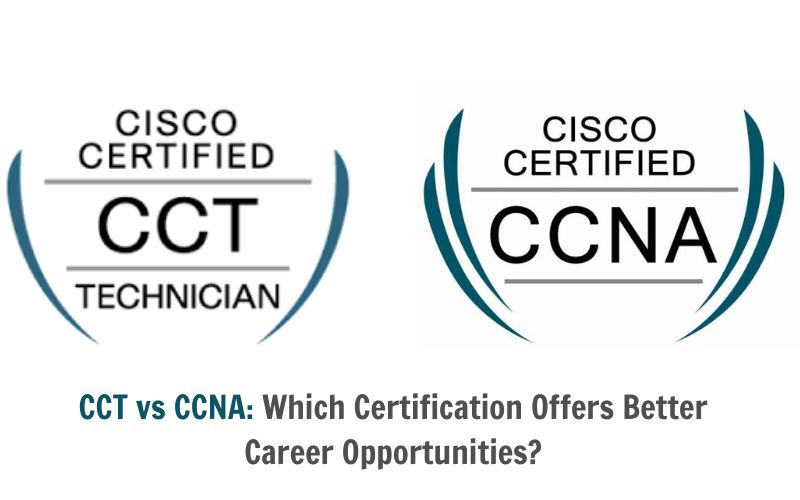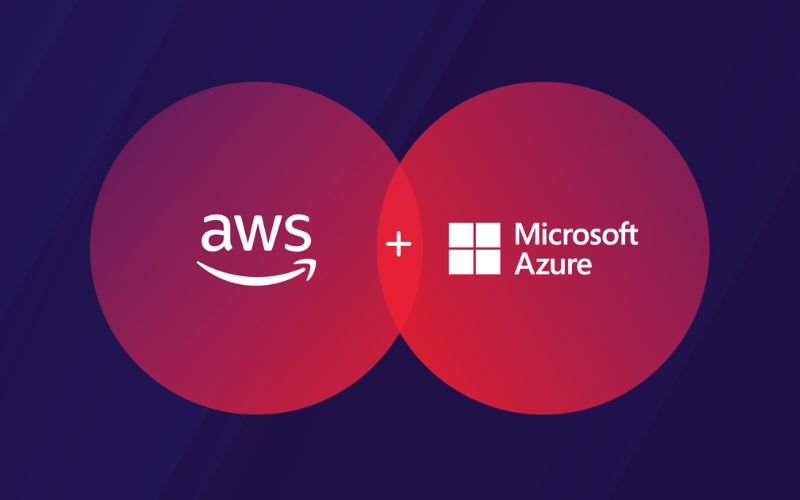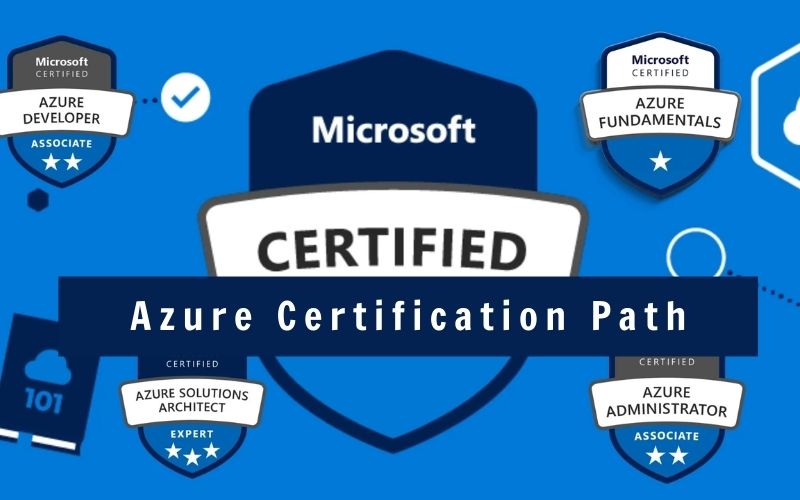Every firm needs project management, which is a crucial task that calls for specialized knowledge and abilities. A professional certification might assist you in showcasing your knowledge and differentiating yourself in a crowded employment market. The Agile Certified Practitioner (ACP) and Project Management Professional (PMP) are two of the qualifications offered by the Project Management Institute (PMI). In order to assist you in selecting the certification that is suitable for you, IT-Exams.Net will compare PMI ACP vs PMP in this post.
What Are PMI-ACP And PMP Certifications?

PMI-ACP
Project Management Professional – Agile Certified Practitioner is referred to as PMI-ACP. The Project Management Institute (PMI) offers certification that shows a project manager’s proficiency with Agile methodology. Scrum, Kanban, Lean, Extreme Programming (XP), and Test-Driven Development (TDD) are just a few of the Agile frameworks and methods covered by the PMI-ACP certification.The PMI-ACP certification also includes subjects like Agile project management tools and techniques, team performance, adaptive planning, problem identification and resolution, and continuous improvement. Project managers that operate in agile contexts or wish to make the switch to agile project management might benefit from the PMI-ACP certification, which is widely recognized.
PMP
PMP stands for Project Management Professional, which is a certification offered by the Project Management Institute (PMI) for project managers who want to demonstrate their expertise in traditional project management. The PMP certification requires passing an exam that tests knowledge and skills in project management areas such as integration, scope, time, cost, quality, human resources, communication, risk, and procurement. PMP certification is recognized worldwide and can enhance the career of project management professionals.
On this website, we have covered all the PMP domains with hundreds of free PMP practice test questions to help users easily prepare for their coming exams. Try it now!
PMI-ACP Vs PMP: What Are The Prerequisites?
If you have a secondary degree, you must have 7,500 hours of managing and directing projects and 35 hours of project management instruction to be eligible for the PMP. If you have a degree, you just need 4,500 hours of project management experience and 35 hours of project management instruction.
PMI-ACP requires 2,000 hours of general project experience. This prerequisite does not apply if you have a current PMP® or PgMP® certification. Aside from that, you must have 1,500 hours of experience working on agile projects. This is in addition to the 2,000 hours of general project experience required. You’ll also require 21 contact hours of agile training.
What Are The Similarities Between PMI-ACP Vs PMP?

Project Management Knowledge Areas
Both PMI-ACP and PMP certifications cover the ten knowledge areas of project management as defined by the PMI’s Project Management Body of Knowledge (PMBOK), which are:
- Integration Management
- Scope Management
- Time Management
- Cost Management
- Quality Management
- Human Resource Management
- Communications Management
- Risk Management
- Procurement Management
- Stakeholder Management
Professional Experience Requirements
Both certifications have professional experience requirements that need to be met before taking the exam. PMP requires a minimum of 3 years of professional experience in project management, whereas PMI-ACP requires a minimum of 2,000 hours of general project experience and 1,500 hours of experience working on Agile projects.
Exam Format
Both certifications have similar exam formats. The PMP exam consists of 200 multiple-choice questions to be answered in four hours, while the PMI-ACP exam consists of 120 multiple-choice questions to be answered in three hours. Both exams are computer-based and offered at PMI-authorized testing centers.
PMI Membership
PMI membership is not a requirement for either certification, but it can provide benefits such as access to PMI resources, networking opportunities, and discounts on exam fees.
Continuing Education
Both certifications require continuing education to maintain the certification. PMI-ACP certification requires 30 professional development units (PDUs) every three years, while PMP certification requires 60 PDUs every three years.
What Are The Differences Between PMI-ACP Vs PMP?

Structure
The PMP test consists of 200 multiple-choice questions that must be answered in four hours. The questions are separated into five process categories and 10 knowledge areas. The PMP test is more in-depth, covering all elements of project management. The PMP exam questions are meant to assess candidates’ knowledge of the PMBOK guide as well as their ability to apply it in a variety of settings. The questions may contain scenario-based inquiries as well as queries concerning process groups and knowledge areas.
The PMI-ACP test consists of 120 multiple-choice questions that must be answered in three hours. The questions are organized around various Agile concepts and practices. The PMI-ACP test is mainly focused on Agile techniques. The PMI-ACP test questions are designed to judge a candidate’s understanding of Agile principles and methods, as well as their capacity to put that knowledge and skills to use in a range of situations. There may be scenario-based inquiries on Agile methods, procedures, and frameworks.
Content
The two tests are rigorous in their requirements for preparation and in their coverage of project management-related material. The curriculum for PMP, in contrast, focuses on the full project management process that incorporates predictive, hybrid, and Agile methodologies. The content for PMI-ACP is less extensive and concentrates mostly on Agile. Candidates taking the PMP course may feel as though they are preparing for a project management-based degree.
Difficulty level
The PMP and ACP exams are regarded as being challenging. However, the PMI-ACP certification test is simpler. It evaluates your familiarity with and comprehension of Agile techniques, processes, and technologies, as well as your capacity to put them to use in practical situations. The PMP exam is often regarded as being more challenging than the PMI-ACP exam due to its longer duration, higher number of questions, and wider variety of subjects covered. Every element of project management is covered by the PMP test. It requires a good understanding of the PMBOK manual. Contrarily, the PMI-ACP test is more focused.
Costs
The costs of taking the PMP and PMI-ACP tests vary based on criteria such as where you take the exam if you are a member of PMI, and whether you need to retake the exam.
The cost of taking the PMP test is $405 for PMI members and $555 for non-members. The PMI-ACP test costs $435 for PMI members and $595 for non-members.
There are other charges connected with taking the PMP or PMI-ACP test in addition to the exam fee. These expenses could include the following:
- Books, study guides, and practice exams are examples of study resources.
- Exam preparation classes for the PMP or PMI-ACP, which might be in-person or online
- If you need to travel to a testing center, you must pay for your own transportation and lodging.
- If you need to retake the exam, you will be charged a retake fee.
It’s also worth noting that if you pass the exam, you must pay an annual certification fee to keep your certification. The annual certification fee for the PMP is $60 for PMI members and $150 for non-members. The annual certification fee for PMI-ACP is $60 for PMI members and $120 for non-members. It is suggested.
Read more >> The Ultimate PMP Study Guide: Crush the Exam And Ace Your Career
What Jobs Can You Get With PMI-ACP Vs PMP?

Obtaining a PMI-ACP or PMP certification might lead to new project management possibilities. Following are some work opportunities that may be explored with either certification:
PMP Certification Job Roles
- Project Manager: in charge of designing, executing, and completing projects within the parameters of scope, time, and money.
- Program Manager: oversees numerous connected initiatives and ensures that they are in line with corporate strategy.
- Portfolio Manager: ensures that a set of projects and initiatives are aligned with company goals.
- Project Consultant: provides specialized advise and support to project management teams.
PMI-ACP Certification Job Roles
- Agile Project Manager: Manages projects utilizing Agile approaches such as Scrum, Kanban, or Lean..
- Scrum Master: Facilitates the Scrum process and assists the team in staying focused on its goals.
- Agile Coach: Assists people and teams in implementing Agile methods and principles.
- Product Owner: Represents the voice of the consumer and collaborates with the team to prioritize and deliver product features.
PMI-ACP Vs PMP Salary

In the field of project management, earning either the PMI-ACP or PMP certification can possibly lead to better pay and career advancement; however, a number of factors, including region, industry, and level of experience, can affect the salary discrepancy between these two credentials.
PMP Certification Salary
People with the PMP certification in the United States make an average salary of $130,000 per year, according to the Project Management Institute’s 2021 wage study. However, a number of variables can affect this number. First and foremost, the location is important since wages tend to be higher in metropolitan regions where there is a greater need for project managers and a higher cost of living. The project manager’s remuneration may also be impacted by the sector of the economy they operate in; sectors like engineering and construction frequently provide higher pay. Additionally, the degree of experience affects prospective earnings because project managers with greater experience often charge higher salaries.
PMI-ACP Certification Salary
The average yearly salary for PMI-ACP certified professionals in the United States, according to the PMI income Survey, is $125,000; however, this amount might vary depending on criteria including area, industry, and degree of expertise. However, gaining PMI-ACP certification may result in greater pay in fields where Agile principles are often employed, such as IT and software development.
Read more >> PMP vs MBA: Which One Is Better For Your Career?
PMI ACP Vs PMP: Which Certification Should You Choose?

Choosing between PMI-ACP vs PMP certifications depends on your career goals, industry, and experience level. Here are some factors to consider when deciding which certification to pursue:
PMP Certification
Select the PMP credential if:
- You have previous project management experience utilizing conventional project management techniques like Waterfall.
- You’re interested in working in the manufacturing, engineering, or construction sectors.
- You’re looking for a certification that is acknowledged around the world and in many sectors.
PMI-ACP Certification
Select the PMI-ACP credential if:
- Using agile project management techniques like Scrum, Kanban, or Lean, you have experience.
- You’re interested in working in fields like marketing, software development, or information technology.
- Working with teams that use Agile approaches is something you want to specialize in.
Consider Both Certifications
Consider earning both credentials if you’re not sure which to pursue. This might show that you are knowledgeable and skilled in both conventional and Agile project management approaches, which can help you stand out as a candidate for jobs across many different sectors.
The PMP certification is primarily concentrated on conventional project management approaches, whilst the PMI-ACP certification focuses on Agile methodologies. Both certificates can result in greater salary and career progress in project management. When determining which certification to seek, take into account your professional ambitions and the field, and keep in mind that earning both credentials might also be advantageous.
FAQs

Can I have both PMI ACP and PMP certifications?
It is possible to hold both a PMI ACP and a PMP certification. By demonstrating your knowledge and competence in both conventional and Agile project management approaches, having both certifications will help you stand out as a candidate for jobs across a range of sectors.
Remember that in order to earn either certification, you must fulfill the prerequisites for that certification. For instance, the PMP certification demands a specific number of hours of education and experience in project management, but the PMI-ACP certification demands a specific number of hours of training and experience in Agile project management.
It might take a lot of time and money to get both certificates, but doing so will show that you are dedicated to your professional growth and will provide you new employment prospects.
Which certification is more popular, PMI ACP vs PMP?
Compared to PMI-ACP certification, PMP certification is more widely used. This is due to the fact that PMP certification has been around for a very long time and is widely accepted across many sectors. The fact that many companies still employ classic project management techniques like Waterfall makes PMP certification an invaluable asset for project managers.
However, as Agile approaches proliferate in sectors like IT, software development, and marketing, PMI-ACP certification is growing in prominence. The need for project managers with PMI-ACP certification is projected to rise as more businesses embrace Agile approaches.
Do I need to renew my PMI ACP vs PMP certifications?
Yes, in order to keep them active, both PMI-ACP and PMP certificates require periodic renewal.
Every three years, the PMP certification needs to be updated. You must get 60 professional development units (PDUs) during the course of the three-year certification cycle in order to renew your PMP certification. PDUs can be obtained through a number of different activities, including participation in training sessions, public speaking, charitable work, and producing essays or books.
Every three years, PMI-ACP certification must also be renewed. You must get 30 PDUs throughout the three-year certification cycle in order to renew your PMI-ACP certification. Similar to the PMP certification, PDUs for PMI-ACP can be obtained by engaging in a variety of Agile project management-related activities, such as attending conferences, delivering presentations, and reading books or articles on the subject.
Are there any prerequisites for taking the PMI ACP vs PMP exams?
There are requirements for both the PMI ACP and PMP tests, yes.
To be qualified to take the PMP test, you must:
- Have a secondary education degree (high school diploma, associate’s degree, or its equivalent) plus at least five years of project management expertise, or a four-year degree plus at least three years of project management expertise.
- You must have completed 35 hours of project management education or training in addition to the necessary experience.
In order to take the PMI-ACP exam, you must:
- Have a secondary education diploma (high school diploma, associate’s degree, or an equivalent) and at least 21 contact hours of instruction in agile principles,
- Have a four-year degree combined with a minimum of 21 contact hours of instruction in agile techniques.
In addition to the educational prerequisites, you must have at least 12 months of recent general project management experience and at least 8 months of recent Agile project management experience.
Final Words
In conclusion, choosing between PMI ACP vs PMP certifications largely depends on your career goals and the type of projects you work on.PMI-ACP is best suited for those who work in Agile project management environments, while PMP is ideal for those who work in traditional project management environments. Both certifications require significant experience, education, and preparation to pass the exam, and both must be renewed periodically to maintain their validity.
It is crucial to thoroughly evaluate your career ambitions, job experience, and the requirements of your employer before picking which certification to pursue. You may improve your knowledge and abilities, get a leg up on the competition for jobs, and help your business succeed by picking the correct certification.
Whether you choose to pursue PMI ACP or PMP, both certifications are highly valued in the project management industry and can open doors to new career opportunities. Take the time to carefully consider your options and choose the certification that best aligns with your career aspirations and professional development goals.
[Sassy_Social_Share]


